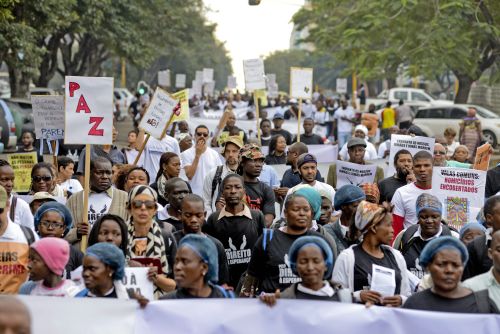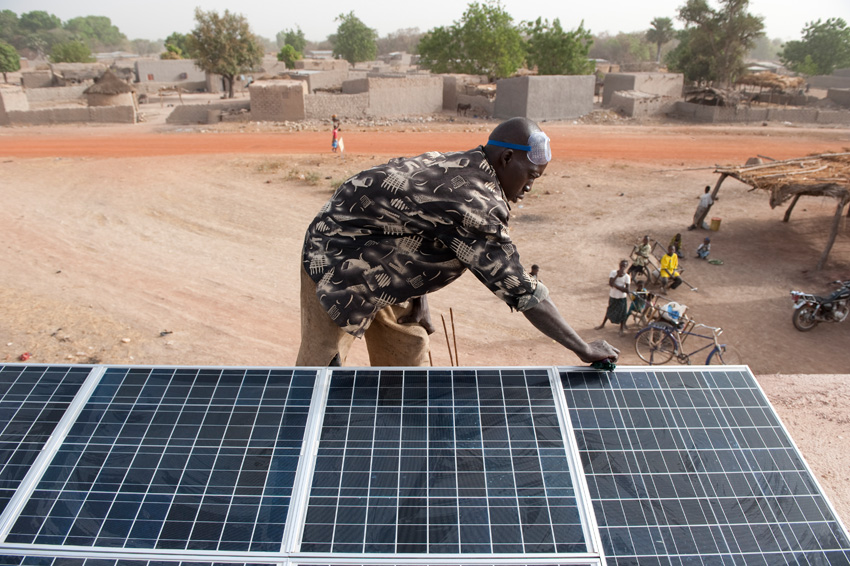Spring meeting
IMF struggles for relevance
The future of World Bank President Paul Wolfowitz was the topic of chief concern at this year’s spring meeting of the Bank and the International Monetary Fund (IMF) in Washington in April. The affair surrounding a promotion Wolfowitz arranged for his partner, World Bank employee Shaha Riza, pushed all other issues into the background. By the time this issue went to press it was still open whether Wolfowitz would stay or resign. However, it already emerged that the President’s handling of the matter damaged trust in the Bank in many donor countries as well as developing countries.
In passing, the affair was mentioned in the communiqué of the IMF and World Bank’s joint development committee: “We have to ensure that the Bank can effectively carry out its mandate and maintain its credibility and reputation as well as the motivation of its staff.” The document went on to state: “We expect the bank to adhere to a high standard of internal governance.”
Other topics covered in the communiqué are the drop in international development assistance in the past year (see p. 184 in this issue) as well as progress in poverty reduction and towards achieving the Millennium Development Goals. According to the World Development Indicators 2007 which the Bank presented at the spring meeting, the number of extreme poor with an income of less than one dollar a day fell by a quarter from 1.25 billion to 985 million from 1990 to 2004 (more recent figures are not available). The decline, according to the World Bank, is fully accounted for by Asia, above all China (see article next page). By contrast, the number of poor in Africa increased by 60 million in the 1990s; it has largely stabilised since then. Since the total population in Africa has grown at an even greater rate, the percentage of poor has dropped from 47% to 41%. Globally, the percentage of extreme poor has fallen from almost 30% to 18% since 1990.
Key topics for the International Monetary Fund included the reform of voting rights and its future role. In its communiqué, the International Monetary and Financial Committee praised the first round of multilateral consultations the Fund organised on imbalances in the global economy. The new approach had been decided at the 2006 spring meeting. Representatives from China, the EU, Japan, Saudi Arabia and the USA have been discussing imbalances in their countries’ current accounts in recent months.
Axel Weber, president of Germany’s central bank (Deutsche Bundesbank), described the talks as useful because they sharpened the awareness of each country having to contribute to eliminating the imbalances. However, the extent to which the IMF should make recommendations for or against certain currency regimes remained disputed in Washington.
Furthermore, the Fund is fighting to save its reputation in developing countries and emerging economies. Its reputation was dealt a blow in Asia because of the controversial way it handled the financial crisis of 1997/98. The Fund’s influence is also waning in Latin America. At the end of February, the governments of Argentina and Venezuela even decided to establish a new development bank for the continent, to make their countries independent of the IMF and World Bank in future. The Banco del Sur, which will be fed by central bank funds, is expected to start operations this year. Bolivia and Ecuador have already pledged their participation and Brazil is considering the prospect, but is demanding conceptual changes.
Meanwhile, the IMF received clear criticism from within its ranks for its policy in Africa. In March, the Fund’s Independent Evaluation Office (IEO) published a review of the IMF’s poverty-reduction policy in sub-Saharan Africa from 1999 on. All summed up, there was practically no difference between the Poverty Reduction and Growth Facility (PRGF) strategy introduced at the time and the much-maligned structural-adjustment policy that had been in effect until then. In a review of World Bank and IMF cooperation, a team of external assessors recently recommended that the Fund should withdraw completely from medium to long-term development funding and leave such tasks to the Bank (see D+C/E+Z 4/2007, p. 136). On the other hand, the IMF steering committee stressed in its communiqué that “the IMF should remain fully engaged with its low-income members” in future too.
No significant progress was made with respect to the redistribution of voting rights in the IMF. Bundesbank President Weber stated that there is agreement in principle that the emerging economies deserve to be strengthened. However, the formula by which voting rights should be distributed in future is still under debate. The steering committee called on the IMF Executive Board to give the issue priority. (ell)










